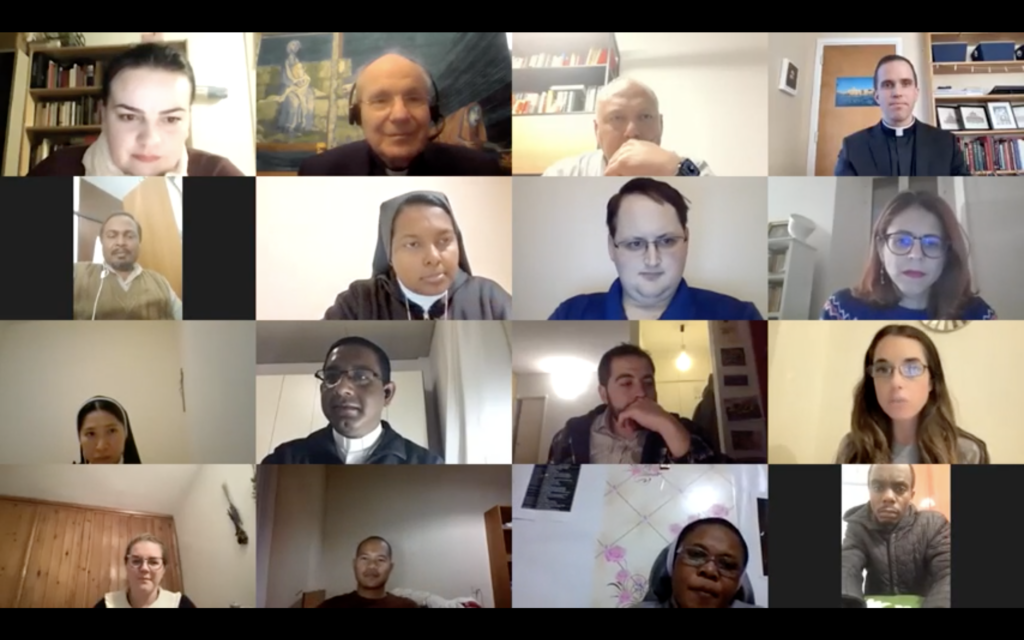Cardinal Christoph Schönborn, Archbishop of Vienna, met virtually with JPII Leaders and Russell Berrie Fellows on January 16 to speak about his experiences of and perspectives on interreligious dialogue. Cardinal Schönborn began by describing his interreligious background. Born in what is now the Czech Republic, Cardinal Schönborn had Jewish roots in his family. Thus, His Eminence shares: “From early in my life, the question of Christian-Jewish relations was very present”: not only an area of theological interest but part of his biography.
Cardinal Schönborn went on to discuss the Catholic Church’s “great opening to other religions” that occurred during and after the Second Vatican Council. His Eminence addressed questions that have emerged since this period: “Can we say there is a true religion?” “How can we relate to other religions?” and, most prominently, “Where is truth?”
In discussing these questions, Cardinal Schönborn cited the teachings of Cardinal Joseph Ratzinger (later Pope Emeritus Benedict XVI). “A number of us asked Cardinal Schönborn about the legacy of Pope Benedict XVI, as Schönborn had him as his professor at Regensburg,” remarks JPII Leader Fr. Ryan Muldoon (Cohort XI, USA). “Cardinal Schönborn pointed to Ratzinger’s belief that every human mind ‘is in need of truth,’ and this common search and the ‘universalism of truth’ (Schönborn’s phrase) is a starting point for interreligious dialogue.”
To illustrate his approach to interreligious dialogue, Cardinal Schönborn recounted his trip to Iran, where he was invited to give a lecture at the University of Tehran in 2001. In this lecture, he posed a question: If both Christianity and Islam have a “call to universality,” is dialogue possible? He concluded that it is possible to engage with someone from another religious tradition on a “deep level” by, first, recognizing that the search for truth “belongs to human dignity,” and, second, sharing one’s “precious values” with the other. For Cardinal Schönborn, the search for truth is not “a danger” to interreligious dialogue but “a condition,” and the most important part of such dialogue is the sharing of “our deep convictions: what we are living from.”
Quoting St. Thomas Aquinas, Cardinal Schönborn emphasized the importance of friendship in interreligious dialogue and encounter. “Friendship, not fear, is the basis of interreligious dialogue,” reflects JPII Leader Bernadette McGonigle (Cohort XII, Ireland). “Real friendship is based on respect for the equal dignity of the other, made in the image of God.” Indeed, for Cardinal Schönborn, friendship is integral in the creation of a “culture of conviviality.”
This meeting with Cardinal Schönborn was a highlight for JPII Leaders and Russell Berrie Fellows alike. “Although online” remarks JPII Leader Ana Petrache (Cohort XIII, Romania), “the cardinal spoke directly to our hearts.” “It is only by talking live with him,” Ana continues, “that one can measure his charisma, a way to express a message of peace by his mere presence.”

